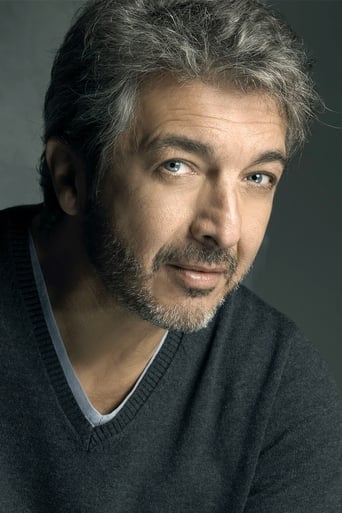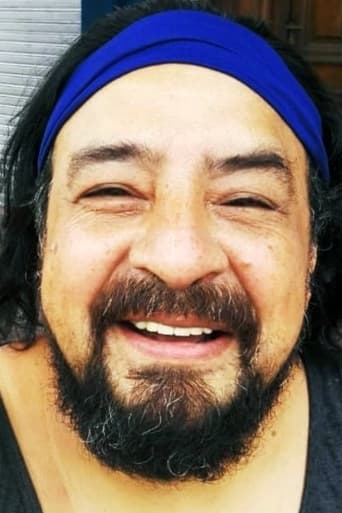Exoticalot
People are voting emotionally.
Noutions
Good movie, but best of all time? Hardly . . .
Raymond Sierra
The film may be flawed, but its message is not.
Patrick Richard
After watching this film last night, i can say a couple of things that come to my mind.Has a good script, but it's "short" and therefore they make some scenes too long, with a pace too slow, to get a movie with a minimum lenght. It could been 20 min shorter, easily.The dark mood of the story is well placed: depressing and dangerous. No complaints here. They make also a good job on showing the daytime differences affecting the characters.What saves this movie is Ricardo Darin's acting and the last scenes of the movie.
gradyharp
CARANCHO ('Vulture' or 'a bird of prey; an animal that attack and feed on wounded animals') is a disturbing film from the opening sequences until the end. Before any story begins we are given the information (superimposed over black and white photographs for broken glass and bodies on a street) about the number of automobile accidents and deaths (in excess of 8,000) each year, the leading cause of deaths in Argentina. This grim fact has produced an even more grim industry - ambulance chasing lawyers who follow and even at times stage accidents in order to collect from insurance and scam the real victims and the insurances companies too. This industry requires the participation of doctors, paramedical personnel and police on the take. Every aspect of this horrendous situation is played out in this tersely written (Alejandro Fadel, Martín Mauregui, Santiago Mitre, and Pablo Trapero who also directs). It is a tough film to watch but does serve to alert the audience to a major crime industry that though set in Buenos Aires, Argentina is prevalent probably throughout the world. Sosa (Ricardo Darín) is a lawyer who has lost his license form some unstated reason who is now working for a 'foundation' that falls into the category discussed above. He not only chases ambulances but also pays men to stage them so that he can collect money based on the fact that he works with the distraught families to win power of attorney for the injured or deceased, giving him access to the insurance money. His bosses are competitive and Sosa is repeatedly attacked physically a la mob style for his failure to perform. Sosa meets Luján (Martina Gusman), a beautiful young doctor who is at the beginning of her career and must work emergency rooms and ride in ambulances to administer to the injured or ill in order to gain experience to become a respected physician. They meet over an accident - Luján is giving aid to a victim and Sosa is planning to use the victim in his crime racket. Both Sosa and Luján seem to have occult senses of responsibility and ethics but life has brought them to a place where they must submerge their standards in order to survive: Luján happens to be a drug addicted 'to sustain the brutality of her work' and Sosa endangers the lives of innocent people to satisfy the bosses to whom he must bow in order to survive. It is this contrast between their passion for each other and their participation in the dark crime of 'caranchos' that provides the push/pull of their relationship, resulting in an ending few will predict. Both Darín and Gusman are outstanding in very difficult roles, but the supporting cast - Carlos Weber, José Luis Arias, Fabio Ronzano, Loren Acuña, Gabriel Almirón, and José Manuel Espeche - is equally strong in smaller roles. This is a very dark film - in story, in locale (the San Justo region of Buenos Aires), and in the fact that it all takes place at night - but it carries information we all need to note and molds that information into a suspenseful thriller that is so well paced by director Pablo Tapero that every moment is filled with meaning. Grady Harp
jmc4769
I would have rated this movie higher but it had one of the most maddening endings I have ever seen in a movie. Not that the rest of the movie was that good. Without the bad ending I would have only increased my rating to 5 or 6.This is one of those movies where the main characters start off in a bad situation and then do one stupid thing after another until their hole is so deep there is no way out. One of the main characters is an attorney who has lost his license and has gotten involved with an ambulance-chasing outfit run by gangsters. The other is an emergency room doctor who shoots up in the bathroom so that she can cope with the long hours of her job.In most suspense thrillers, the formula goes like this. The good guys get badgered, threatened, and chased by the bad guys, narrowly escaping death, but in the end winning out, usually in some ingenious way. If you happen to like this formula, don't go see Carancho because the people who made it threw the formula out the window.**SPOILERS** As our heroes are driving away from a climactic gun battle having miraculously survived a horrific car accident and a shower of bullets coming through their windshield, they are hit by another car. The guy ends up dead and the girl's condition is apparently serious. The screen goes black--end of movie. I don't know about you, but to me the tragic ending is becoming a cliché in movies. I think that killing off a main character at the end is an overused trick some filmmakers use to make their movies more dramatic or artsy. OK, I agree that filmmakers WERE following the film noir formula: If the hero does something unforgivable, he must die. But that explanation of the ending only leads to another problem. Why did Sosa kill his boss in cold blood? Sure, his boss had Sosa's girlfriend slapped around, but it was out of character for Sosa to beat the guy to to a bloody pulp. Sosa is a petty criminal, but not a killer. In fact, it seems that the main reason for having Sosa murder his boss and having his girlfriend be a drug addict was so that they would be "dirty" enough to be killed or suffer greatly at the end.
casch0101
I consider Ricardo Darin is one of the best actors in the world. Period. He has been approached to become a "hollywood star" "a la Banderas and Bardem", but refused to. He is very OK in his native Argentina, and has been in four movies during five years. Trapero is a top-notch scriptwriter and director. Notwithstanding the emotional anxiety or even repulsion that the story itself and some scenes may convey, this is a phenomenal work of art film, cinematography, acting, direction, design and clothing. The romance between these two souls (one, dishonest, the other, weird and low self-esteem)is believable, and adds some suppleness to an otherwise very twisted and somewhat creepy story.





